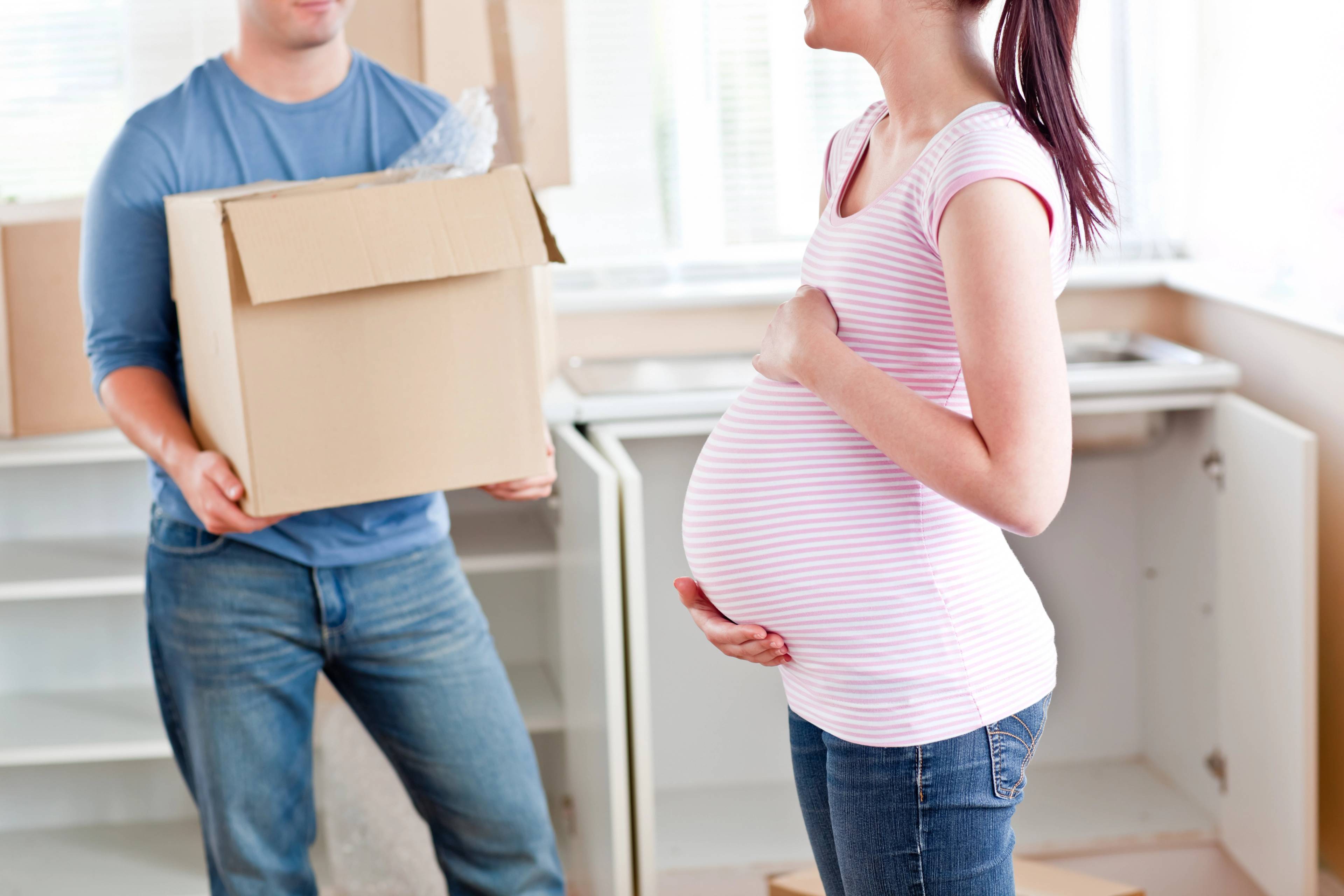Key Takeaways
Move during your second trimester if possible; avoid heavy lifting
Plan early: book movers, update NHS details, research local maternity services
Pack smart: use small boxes, label clearly, keep your hospital bag ready
Use storage to declutter gradually and bridge any gap between homes
Rest often, eat well, ask for help, and focus on your health and baby
Moving house is always a major undertaking. Add pregnancy into the mix, and balancing physical health, emotional wellbeing, and careful planning becomes even more important.
Whether you're just a few weeks or several months pregnant, you’ll want to avoid unnecessary physical strain, stress, and risk. This blog will help guide you through the process with empathy, expertise, and practical solutions.
Table of contents
Timing your move
Planning ahead for a smooth move
Packing and lifting: do's and don'ts
Choosing the right storage option
Moving day survival tips for pregnant women
Settling into your new home
Health considerations during your move
Emotional well-being and building support
Timing your move

The safest stage to move home during pregnancy is typically the second trimester.
Research shows the second trimester (weeks 13 to 27) is generally the most suitable time to plan a house move. Many mothers have more energy and feel less sick during the second trimester. By this point, the discomforts of the first trimester (such as nausea and fatigue) have likely eased, and you're still mobile enough to take part in the move.
First trimester: Energy levels may be low, and risks of miscarriage or complications are higher. It's best to avoid moving if possible.
Third trimester: As you approach your due date, mobility becomes restricted and the risk of premature birth increases.
No matter when you're moving, talk to your midwife or GP for tailored advice and to ensure your antenatal care continues uninterrupted.
Planning ahead for a smooth move
Careful planning is essential when moving home while pregnant. Here are some key steps to take in advance:
Research your new area: Look into maternity services, antenatal classes, and your new GP's availability. Ensure your new address falls within your current GP's catchment area, or arrange to change GP as soon as possible.
Notify essential services: Update your address with your midwife, NHS, and antenatal appointment centres.
Create a moving checklist – HOLD offers a downloadable moving house checklist to help you stay on track.
Schedule your move early – Book your removal van or service well in advance to ensure availability and flexibility. This would give you one less thing to worry about.
Moving while pregnant in the UK means working around unpredictable weather and potentially limited services, so aim to finalise arrangements ahead of time.
Packing and lifting: do's and don'ts
Taking regular breaks and staying hydrated is important during a move.
Lifting heavy boxes can be dangerous during pregnancy, increasing the risk of physical strain, carpal tunnel pain, and even premature birth. According to research by the National Institute for Occupational Safety and Health (NIOSH), it's best to avoid lifting more than 9–11 kilograms (about 20–24 pounds) while pregnant.
Heavy lifting can strain your joints, worsen issues like carpal tunnel, and even increase the risk of premature labour. If you’re moving house, try to steer clear of heavy boxes or repetitive lifting, ask for help and put your health first.
Instead:
Ask family members or friends to assist.
Consider hiring professional movers.
Use self-storage to declutter gradually.
Top packing tips:
Label boxes clearly by room.
Use small, manageable containers for daily items.
Pack your hospital bag early with baby essentials, in case you go into labour during the move.
Choosing the right storage option
If your move doesn’t align with your due date, or if there’s a gap between leaving your old house and entering your new one, storage becomes essential.
Benefits of storage while pregnant:
Reduces clutter and makes the move less overwhelming.
Offers breathing room to prepare your new home in stages.
Helps avoid injury by limiting the number of heavy boxes in your immediate space.
HOLD offers tailored moving house storage with flexible contracts, ensuring your belongings are safe and accessible when you need them.
Moving day survival tips for pregnant women
Moving day can be emotionally and physically intense. Pregnant women should prioritise rest and organisation while others handle the hard work.
Your essentials:
Snacks, water, maternity notes, and your hospital bag.
A calm environment and a comfortable seat to take regular breaks.
Someone you trust to accompany you and keep stress levels low.
Pregnancy is not the time to take on the physical strain of a big house move. Let professionals do the heavy lifting while you focus on your health and your baby.
Settling into your new home
Once the boxes are in, the real journey begins—creating a peaceful, baby-friendly space in your new house.
Start with the essentials: nursery, bedroom, kitchen.
Register with your new GP and book any outstanding antenatal appointments.
Unpack gradually as your body needs time to adjust.
Explore your new neighbourhood to find local antenatal classes and family-friendly venues. Making new friends in your area will help build a supportive network before the baby arrives.
Health considerations during your move
Even with help, moving can affect your physical health, especially if you're in your third trimester. Pay attention to signals from your body, such as swelling, fatigue, or cramps.
Health reminders:
Stay hydrated and eat nourishing food.
Don’t push yourself physically; take it day by day.
Speak to your midwife if you feel unwell or are concerned about early signs of giving birth.
It’s okay to postpone tasks until after the baby is born. What matters most is your comfort and safety.
Emotional wellbeing and building support
Pregnancy is an emotional time. Moving away from familiar surroundings and old house memories can add to the load. Combat isolation by:
Joining community antenatal classes.
Connecting with mums via online forums.
Inviting friends and family to visit and help you settle.
Building bonds with new friends can ease the transition and help you feel grounded in your new area. Don't hesitate to ask for help. This chapter is all about support and starting your new life.
Conclusion
Moving home while pregnant doesn’t have to be overwhelming. With smart planning, the right support, and a reliable storage partner like HOLD, you can ease the load both physically and emotionally. Focus on what matters: preparing for your baby and settling into your new life with confidence.
HOLD can take the stress out of your move

Moving while pregnant is no small task. If you choose to store with HOLD, our friendly team will ensure you're properly taken care of. Our personal storage solutions are flexible, reliable, and ideal for clearing space and staying organised before your baby arrives. With climate-secure units, 24/7 CCTV coverage, and outstanding customer support, we can bring you peace of mind.
Our 24-hour storage units and King’s Cross location offer convenient access whenever you need it. What's more, we provide high quality packing supplies at our online Box Shop, and our furniture storage is a perfect fit for bulky items or nursery prep.
Get a free quote today and see how we can help make your move easier.
Frequently asked questions
Can I move house safely during pregnancy?
Yes, with careful planning and support, moving house while pregnant can be done safely. Avoid heavy lifting and consult your midwife regularly.
What if I go into labour during my move?
Always have your hospital bag ready and packed. If you experience signs of giving birth, call your midwife or head to the nearest maternity unit immediately.
What is considered overdoing it while pregnant?
According to the NHS, overdoing it means pushing yourself beyond a safe level of effort, especially if you become too breathless to hold a conversation, feel dizzy, or experience pain or fatigue. Exercise and daily tasks should feel manageable and stop well before exhaustion. If in doubt, slow down and speak to your midwife or GP.
Can I use HOLD Self Storage if I need quick access to my items?
Yes! HOLD offers convenient 24-hour storage units across London, allowing you to access your items whenever needed.
Does HOLD provide storage for short-term house moves?
Absolutely. HOLD’s personal storage solutions are ideal for both short-term and long-term use, giving you flexibility during your pregnancy.
How can I stay emotionally supported in a new area?
Join antenatal classes, connect through online forums, and seek out new friends in your new neighbourhood. Social support makes all the difference during big life transitions.

